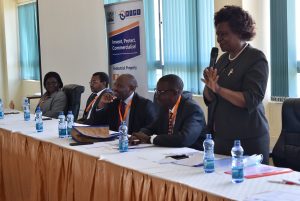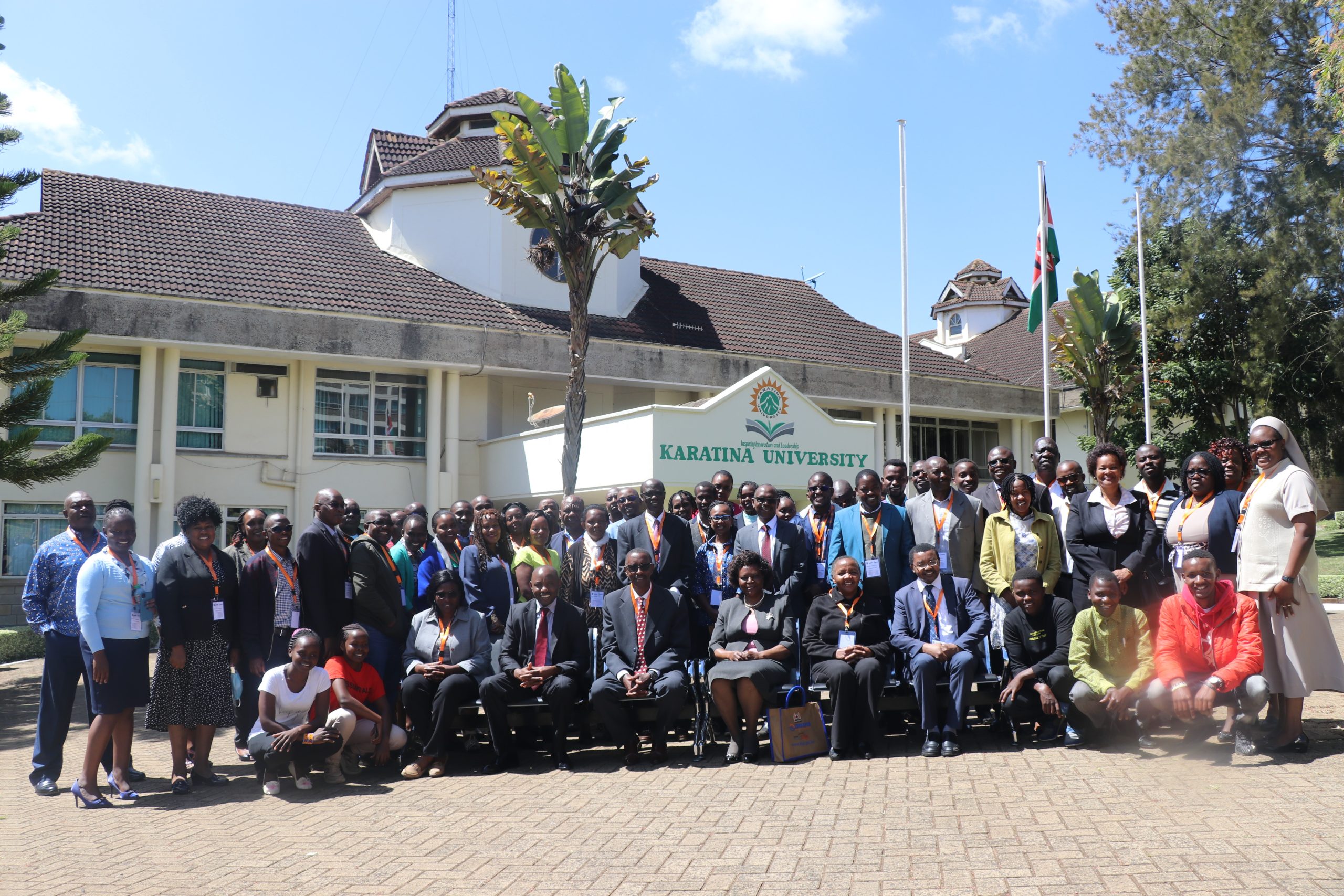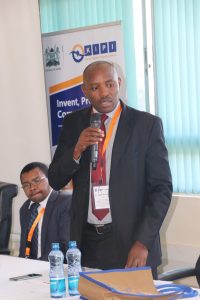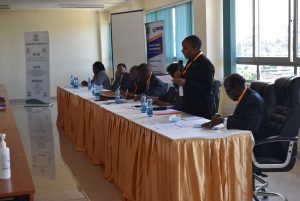represent the base upon which knowledge for a knowledge-based economy is anchored.

DVC (ARSA), Prof. Peninah Aloo-Obudho, representing the Vice Chancellor
He further stated that it is important for Kenya to generate knowledge as well as create and commercialize Intellectual Property in order to grow the wealth of the country. Prof. Muchiri called upon academic institutions and scholars to work towards achieving this goal. He encouraged institutions to establish Technology and Innovation Support Centres (TISC) and IP Management systems due to their importance in providing support systems for researchers.
Tool for socio-economic development
Mr. Charles Mutinda, Member, Board of Directors, Kenya Industrial Property Institute (KIPI) said that Intellectual Property, which deals with the creations of the human mind, has been identified as an important tool for the promotion of social, cultural and economic development.
‘This is because, with a sound IP system, innovators and inventors are assured of recouping a return on their investment since their IP rights in form of patents, trademarks, plant breeders’ rights (PBRs) or copyright are protected. This leads to an increase in innovative and inventive activities which are key drivers to





